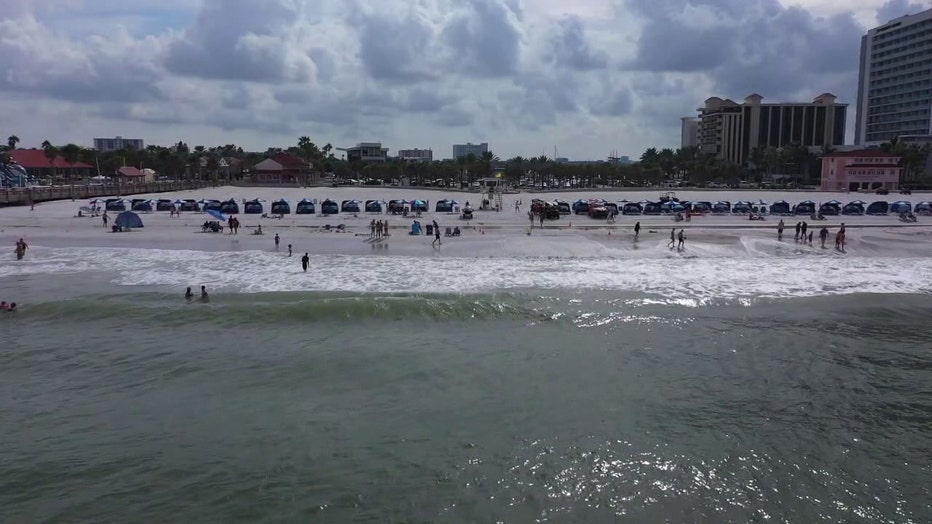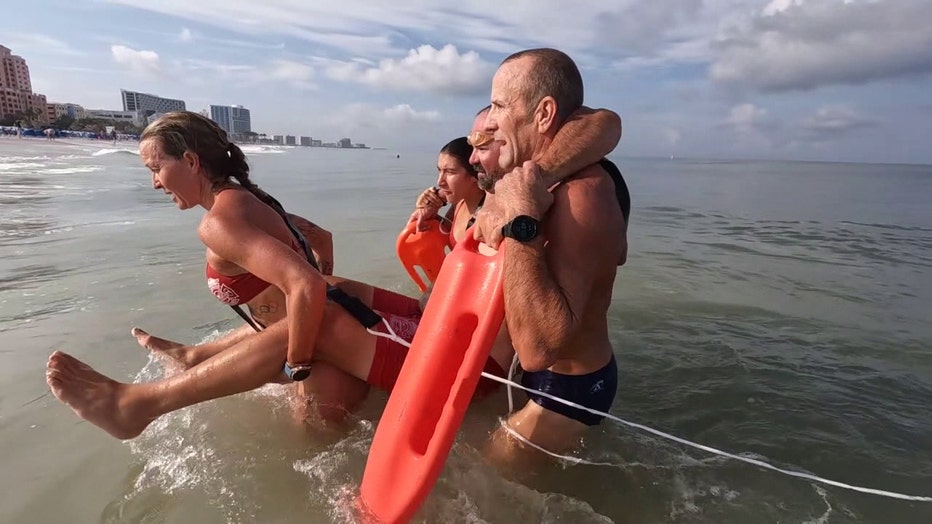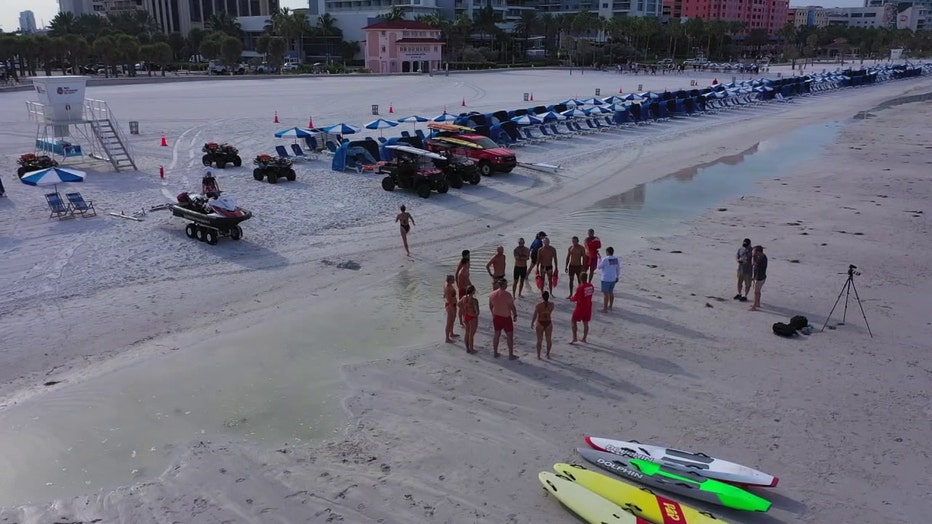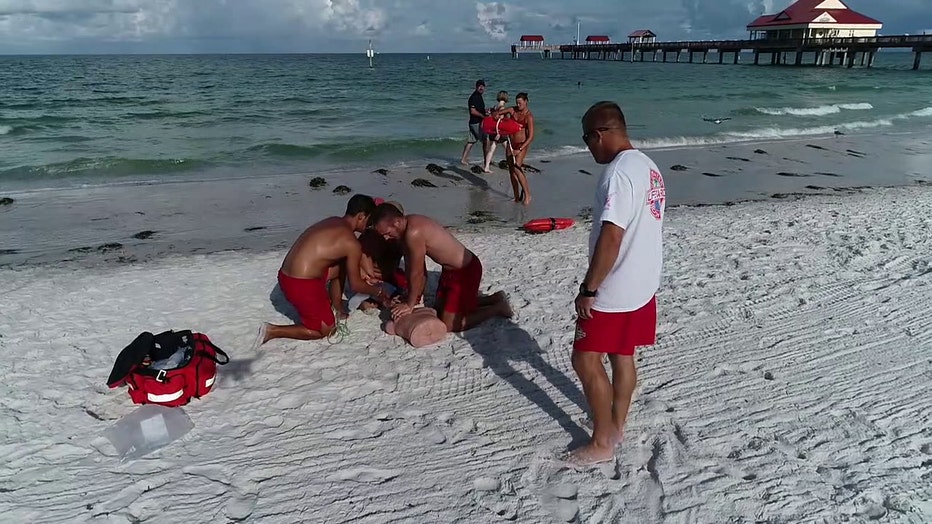‘It’s a calling’: The challenges Clearwater Beach lifeguard face protecting paradise
ST. PETERSBURG, Fla. - Tourism in the St. Petersburg/Clearwater area saw record breaking numbers in 2020 and the Spring of 2024, according to Visit St. Pete-Clearwater. Millions of out-of-towners go to Clearwater Beach, spending their afternoons under the watchful eye of the beach lifeguards.
Three miles of white sand packed with tourists year round, which mean those who protect it are on the clock 365 days a year.
"We’re the ones that feel the sting of the sun, sand on our feet, the taste of the salt on our lips," said Patrick Brafford, a lifeguard manager of 14 years. "We’re out here day in, day out. It’s a calling for us."
READ: More pet owners turning to 'fresh' food for their furry friends
It’s his job to make sure the men and women tasked with keeping beachgoers safe are in tip-top shape with mandatory trains every morning.

"In the very nature of the word first responder, we are first without a doubt on every call when seconds count," Brafford explained.
They run relays, swim around Pier-60, review medical training and do mock rescues all to make sure they're ready for the real thing. Olympic Gold medalist Brooke Bennett works part-time as a guard to stay fit and to serve the community she grew up in.
"My diciest one was down by the jetty. It was a young little boy, and when I got to him he said he didn't want to die. I was nervous, I was gassed getting out to him," Bennett said.
MORE: Pinellas Park officials break ground on new sports park expected to help kids achieve dreams
Even for Bennett, making a save in the gulf is a challenge.

"That’s why our trains are so important, because when you're rescuing somebody it’s not only me using my physical ability to get to that victim, but then I have to get that victim in," she explained.
Beach Lifeguard Supervisor Konrad Ciolko is from Poland and has been a guard for 22 years.
"It's unpredictable, environment conditions are changing daily," said Ciolko.
He estimated that he’s made more than 100 rescues and seen a lot – from hurricanes and threats of lightning to dangerous rip currents and freak accidents.
READ: St. Pete becoming hotspot for bachelorette parties: 'Best of both worlds'
"We get close to a million people come to visit this beach yearly and holiday weekends it gets really, really busy out here, and it gets quite tough," he said.

Physical fitness is a large part of being a beach lifeguard. Before you can even become a lifeguard at Clearwater Beach, you have to pass a physical test.
It’s a 500-meter swim in the Gulf followed by a mile beach run. The swim needs to be completed in 10 minutes and the total test must be finished in under 18 minutes. Lifeguards repeat that physical test twice a year to maintain their endurance.
"Whether it’s a young kid or an adult two times bigger than me, it’s not a quit and give up, you bare down, and you go," Bennett said.
The average age of a Clearwater Beach lifeguard is 35. The youngest is 19 years old and the oldest is 55-year-old JP Atherholt.
"You’ve got to be in shape, you’ve got to be physically and mentally prepared to do it every day. So, it’s not as easy as some people think, it really is a tough job," Atherholt said.

MORE: Tampa fashion designer creates clothing for people with disabilities
They're a tight knit bunch, pushing one another to be their best and having each other’s back when it matters most.
During peak season, 11 lifeguards are on the tower. During Fall and Winter, there are eight guards on the tower.
Brafford said it’s a constant struggle to find full-time lifeguards. He said they can't survive on a lifeguard salary alone as full-time guards make $38,000 a year. Part-time guards make 18.33/hour.
WATCH FOX 13 NEWS:
STAY CONNECTED WITH FOX 13 TAMPA:
- Download the FOX Local app for your smart TV
- Download the FOX 13 News app for breaking news alerts, latest headlines
- Download the SkyTower Radar app
- Sign up for FOX 13’s daily newsletter

